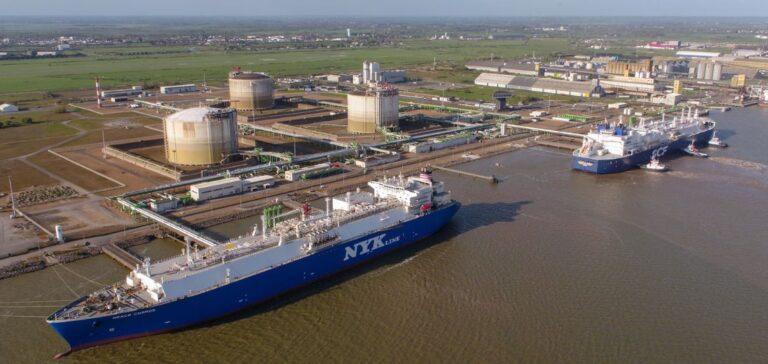Europe’s leading economy is resolutely turning to hydrogen to decarbonize its industry and energy production.
Having abandoned nuclear power in 2023 and committed to phasing out coal by 2038, the country plans to cover 50-70% of its hydrogen needs with imports by 2030.
Economy Minister Robert Habeck emphasizes the importance of this strategy as part of the country’s energy transition.
Supply Diversification Strategy
To secure these supplies, the government is striving to diversify its sources of supply.
The authorities are working with several partner countries, including Canada, Qatar, Australia and various African nations.
These collaborations aim to guarantee a stable and diversified supply of hydrogen, in the form of ammonia or liquid hydrogen.
At the same time, there are plans to build pipelines to transport hydrogen from neighboring regions.
Hydrogen is mainly intended for energy-intensive industrial sectors, such as steel production, where renewable energies cannot be used directly.
Eventually, the plan is to substitute hydrogen for natural gas in power plants, thereby reinforcing the country’s energy transition.
Challenges and criticisms of the Roadmap
However, the roadmap is facing criticism.
Hartmut Rauen of the Machine Tool Manufacturers’ Association (VDMA) feels that the plan lacks concrete measures and milestones to stimulate global hydrogen trade.
Similarly, the “Zukunft Gas” association is calling for precise timetables and a uniform international certification system for hydrogen.
The war in Ukraine, which marked the end of the era of cheap Russian gas, accentuates this urgent need for new energy sources.
The Federal Republic must therefore manage its internal ambitions while integrating into a global framework to become a major player in the hydrogen economy.
Current efforts in energy policy and criticism from economic players could well define the future of the hydrogen market in Europe.
Future prospects
To meet the estimated need for between 360 and 500 terawatt-hours of hydrogen by 2045, Germany needs to build the right infrastructure and strengthen its international partnerships.
The government’s efforts to diversify its sources of supply are crucial to ensuring the energy transition.
In addition, the development of an international certification system could boost confidence in the global hydrogen market.
By positioning itself as a leader in hydrogen, France is demonstrating its determination to meet the challenges of decarbonization.
The steps taken today will have a significant impact on the country’s energy transition and its role in the global hydrogen economy.
The road to a decarbonized economy is complex, but Berlin’s commitment to this path is a strong signal for the future.






















